Thrilling Images Show First Launch of SpaceX's Revamped Starlink Satellites
SpaceX successfully deployed the first batch of its next-generation Starlink satellites, which the company hopes will increase the broadband capacity of its internet megaconstellation.
The next phase in SpaceX’s Starlink internet project has begun. On Monday, SpaceX’s Falcon 9 rocket took off against a picture perfect sunset backdrop, delivering 21 upgraded units to low Earth orbit.
Read more
These Winning Close-Up Photos Show Life That's Often Overlooked
Remembering Enterprise: The Test Shuttle That Never Flew to Space
Liftoff!
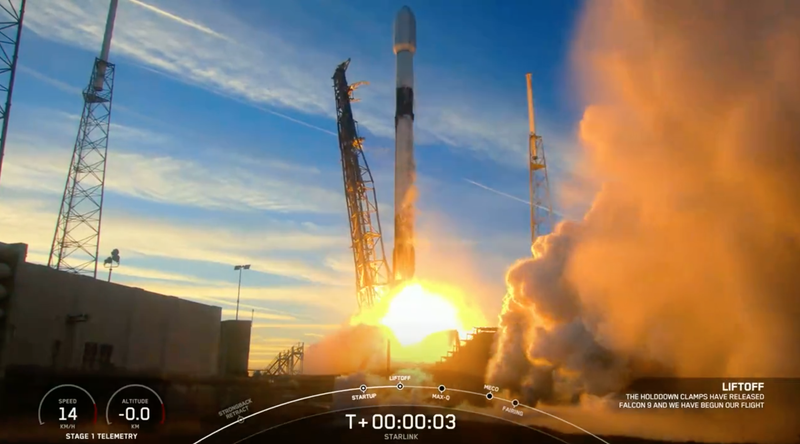
SpaceX launched its Falcon 9 rocket from Space Launch Complex 40 at Cape Canaveral in Florida at 6:13 p.m. ET. This was SpaceX’s 13th mission of the year, as the private aerospace company continues to work at a frenetic pace.
Precious cargo
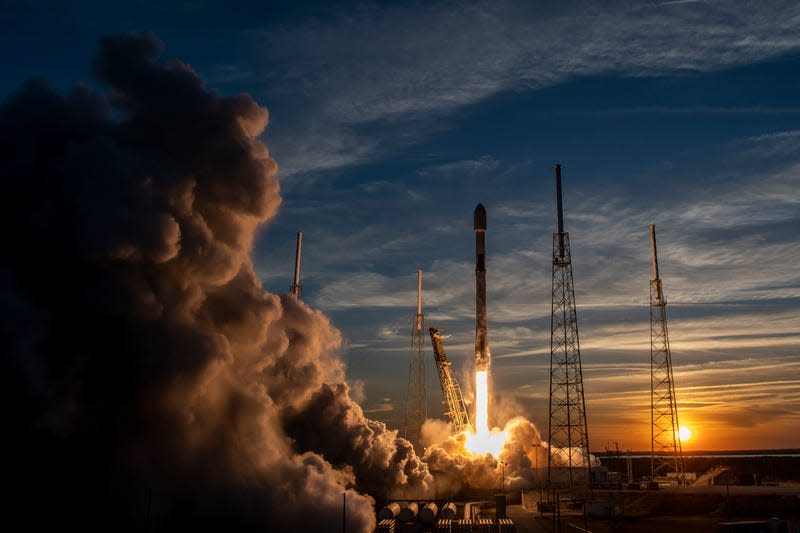
Twenty-one next generation Starlink satellites were packed atop the Falcon. Nicknamed the V2 Minis, the satellites are a miniaturized version of the ones the company is hoping to launch with its upcoming Starship rocket. SpaceX downsized its next generation satellites so that they fit in a Falcon 9 rocket. SpaceX confirmed the deployment of all 21 V2 Minis in a tweet.
Many satellites in orbit
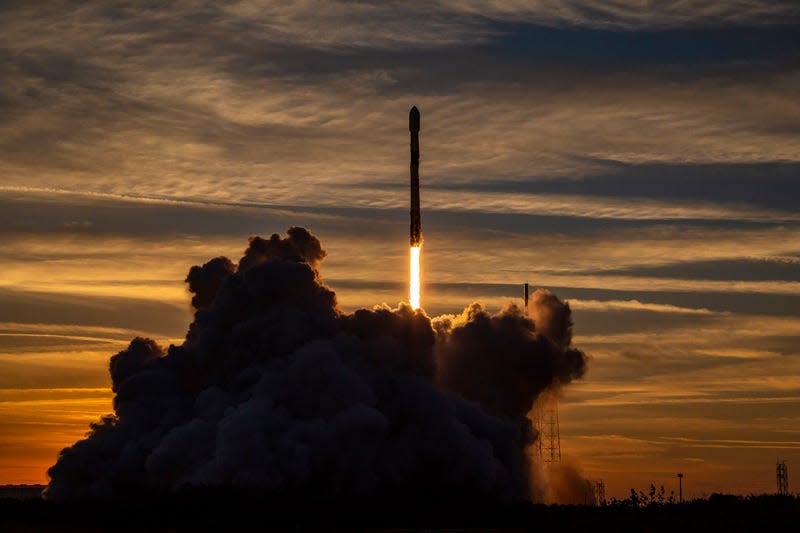
With this launch, SpaceX has now delivered more than 4,000 Starlinks to low Earth orbit (4,002 to be exact), of which 3,660 are operational, according to figures tracked by Harvard-Smithsonian astronomer Jonathan McDowell.
A new era for Starlink
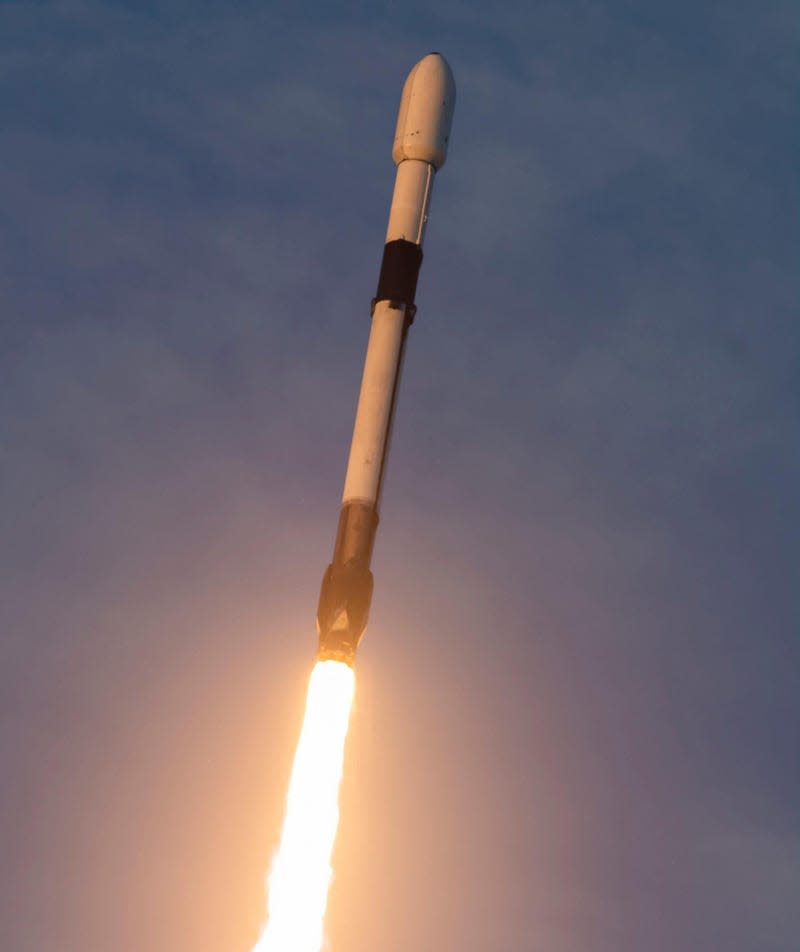
On Sunday, SpaceX revealed new details about its V2 Minis in a series of tweets. The upgraded Starlink satellites are equipped with more powerful antennas and high-speed frequencies, allowing them to provide roughly four times greater capacity per satellite compared to the earlier versions, according to SpaceX.
The V2 Minis will use argon-fueled Hall thrusters, a cheaper alternative to the xenon propellant that’s typically used, according to SpaceX. The company says this marks the “first time ever that argon Hall thrusters [will be] operated in space.”
Temporary ride
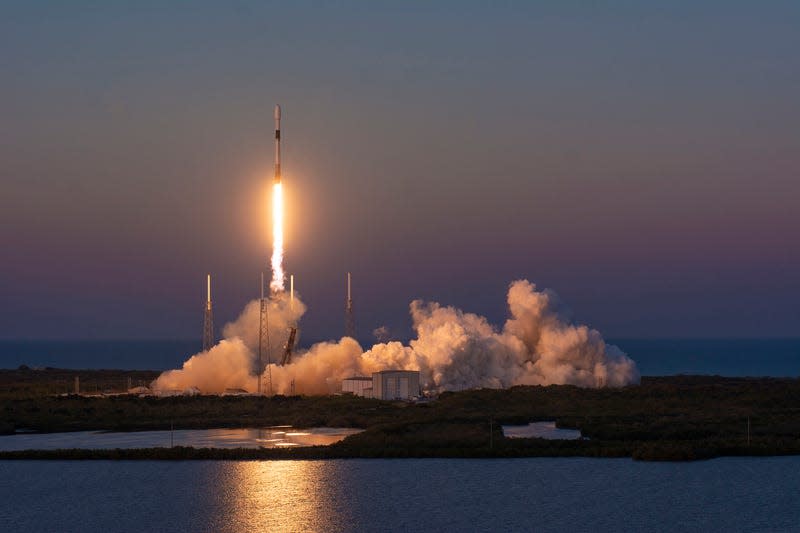
The company was granted a license by the Federal Communications Commission in December 2022 to launch 7,500 next-generation satellites to low Earth orbit. In its letter to the FCC requesting the license, SpaceX announced its intention to downsize the Gen2 satellites such that Falcon 9s can carry them to space.
In flight
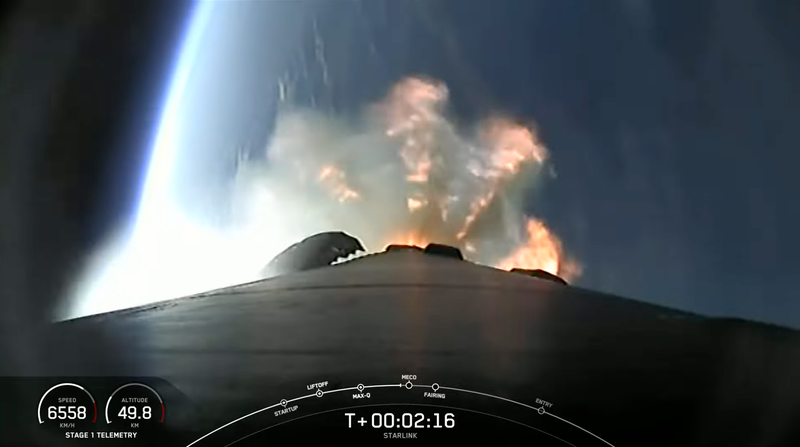
A view of the rocket two minutes and 16 seconds into the mission, when Falcon 9 was 4.1 miles (6.6 km above the surface).
Deployment
About an hour after launch, the rocket’s second stage deployed the 21 V2 Mini satellites in low Earth orbit.
The full-sized V2s will measure 22 feet long (7 meters) and weigh roughly 2,755 pounds (1,250 kg), while the earlier versions weigh about 573 pounds (260 kilograms). In order to carry that heavier payload, SpaceX is pushing for an orbital launch test of its Starship rocket in March.
Sticking the landing
After the launch, the Falcon 9 booster performed its 100th consecutive successful landing, according to Teslarati. SpaceX has maintained its reusable rocket’s streak since February 16, 2021.
Touchdown
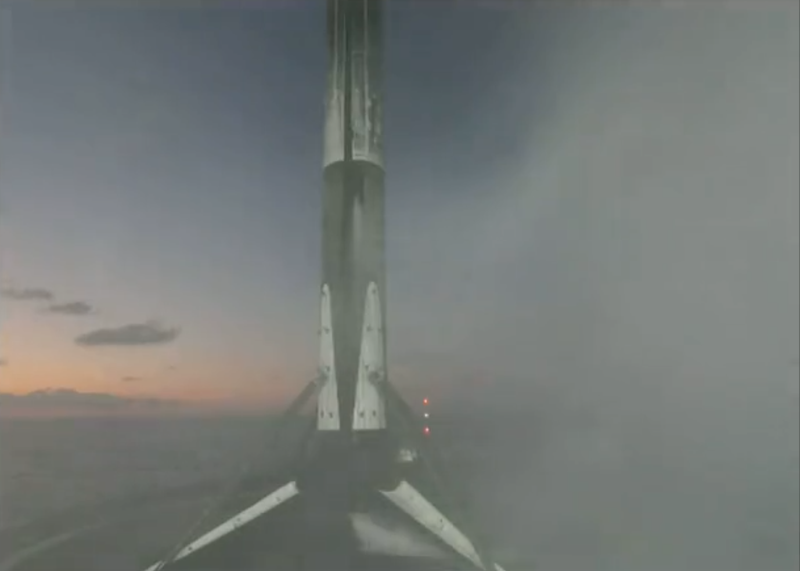
Falcon 9 is the hardest working rocket in the game. Last year, the rocket set a record of 60 launches, doubling its launch count from 2021.
More from Gizmodo
Sign up for Gizmodo's Newsletter. For the latest news, Facebook, Twitter and Instagram.

